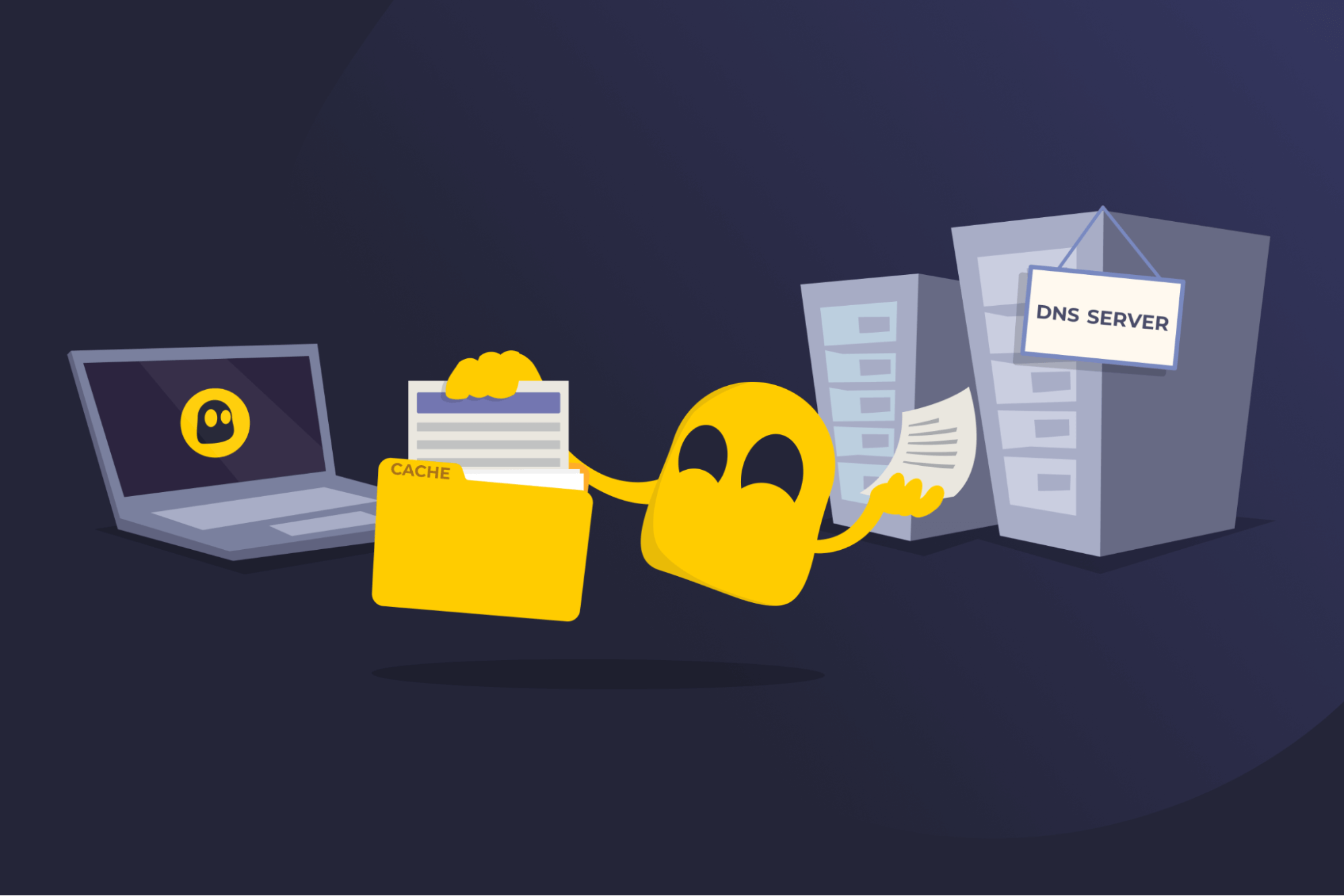DNS Proxy

DNS Proxy Definition
A DNS (Domain Name System) proxy is a server or service that handles communication between your device and a DNS server, forwarding DNS requests on your behalf. It can help manage DNS traffic more efficiently by routing queries, filtering requests, and caching previous responses (if configured) to speed up repeat lookup time.
Most people don’t use a DNS proxy by default. Your device usually sends DNS requests to your internet provider’s DNS server. A DNS proxy is something you or your network admin manually can set up for faster performance, filtering, or added security.
How a DNS Proxy Works
When a device needs to load a website, it sends a DNS request to find its IP address. This is called DNS resolution. With a DNS proxy enabled, that request first goes through the proxy instead of heading directly to the DNS resolver.
The proxy then checks its local cache (if enabled) to see if it already has the answer. If it does, it immediately returns the correct IP address to the device. If it doesn’t, it forwards the request to an external DNS server and sends the response back to the device. At the same time, it saves that response for future queries.
A DNS proxy can also help enforce rules, like blocking access to specific domains, monitoring DNS activity, or applying content filters.
Benefits of Using a DNS Proxy
- Quicker lookup times: A DNS proxy caches previous answers to save time looking up the same addresses twice.
- Potentially lower latency: If the proxy is closer or more efficient than your ISP resolver, it can route search requests more efficiently.
- More control over content access: A DNS proxy lets you block unwanted websites or categories, like adult content or social media.
- Added security: Some DNS proxies can help block known malicious domains used in phishing, malware distribution, or botnets.
Read More
FAQ
A DNS proxy server handles your DNS requests and routes them through a remote server. It can speed up browsing with cached results. Some DNS proxies may even block harmful or unwanted sites, depending on how they’re set up.
Turning on your DNS proxy can help websites load faster and give you more control over your internet traffic. A DNS proxy works by forwarding your DNS queries to a specific server rather than using your ISP’s default servers. This can help speed up website loading times, block unwanted content, or improve privacy, depending on how the proxy is configured.
However, it’s only beneficial if the proxy is trustworthy and properly set up. Otherwise, it may introduce security or reliability issues.
A DNS proxy manages only your DNS requests. It may filter, cache, or reroute these requests, but it doesn’t encrypt your internet traffic or hide your IP address. A VPN encrypts your internet traffic, including DNS queries. It reroutes your connection through secure private servers, changes your IP address, and helps protect your data from online snoops. However, it doesn’t typically cache your DNS responses.
 45-Day Money-Back Guarantee
45-Day Money-Back Guarantee